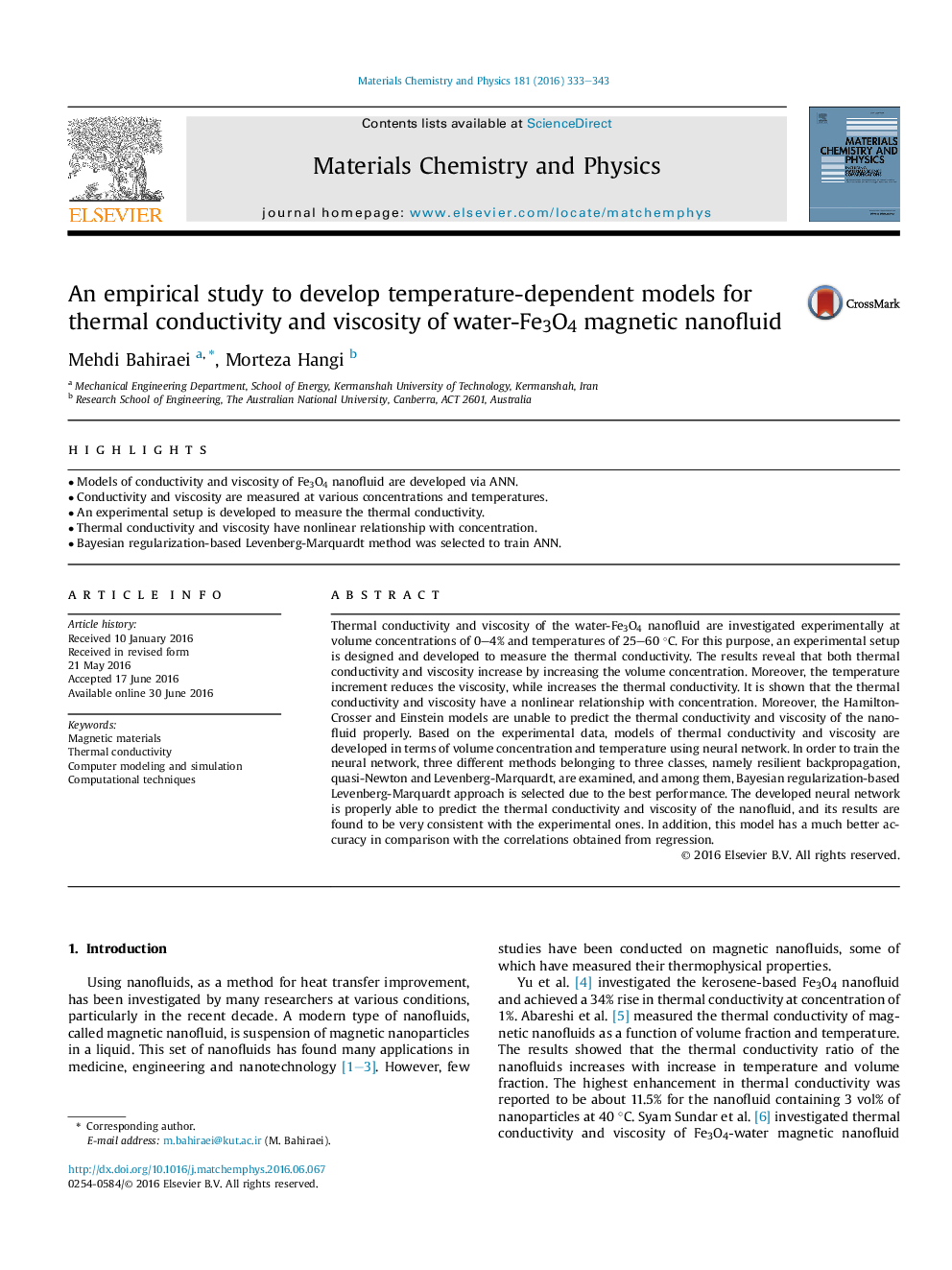| کد مقاله | کد نشریه | سال انتشار | مقاله انگلیسی | نسخه تمام متن |
|---|---|---|---|---|
| 1520472 | 1511782 | 2016 | 11 صفحه PDF | دانلود رایگان |

• Models of conductivity and viscosity of Fe3O4 nanofluid are developed via ANN.
• Conductivity and viscosity are measured at various concentrations and temperatures.
• An experimental setup is developed to measure the thermal conductivity.
• Thermal conductivity and viscosity have nonlinear relationship with concentration.
• Bayesian regularization-based Levenberg-Marquardt method was selected to train ANN.
Thermal conductivity and viscosity of the water-Fe3O4 nanofluid are investigated experimentally at volume concentrations of 0–4% and temperatures of 25–60 °C. For this purpose, an experimental setup is designed and developed to measure the thermal conductivity. The results reveal that both thermal conductivity and viscosity increase by increasing the volume concentration. Moreover, the temperature increment reduces the viscosity, while increases the thermal conductivity. It is shown that the thermal conductivity and viscosity have a nonlinear relationship with concentration. Moreover, the Hamilton-Crosser and Einstein models are unable to predict the thermal conductivity and viscosity of the nanofluid properly. Based on the experimental data, models of thermal conductivity and viscosity are developed in terms of volume concentration and temperature using neural network. In order to train the neural network, three different methods belonging to three classes, namely resilient backpropagation, quasi-Newton and Levenberg-Marquardt, are examined, and among them, Bayesian regularization-based Levenberg-Marquardt approach is selected due to the best performance. The developed neural network is properly able to predict the thermal conductivity and viscosity of the nanofluid, and its results are found to be very consistent with the experimental ones. In addition, this model has a much better accuracy in comparison with the correlations obtained from regression.
Journal: Materials Chemistry and Physics - Volume 181, 15 September 2016, Pages 333–343